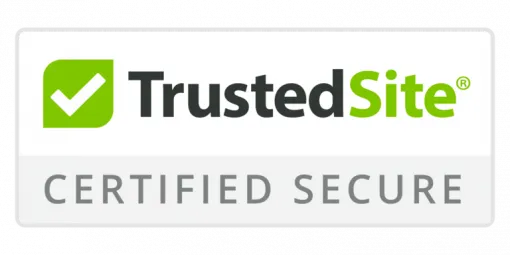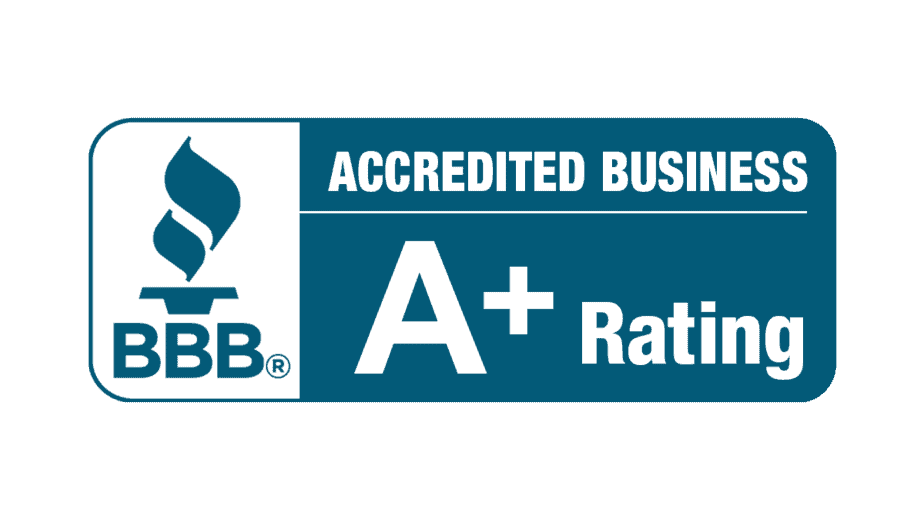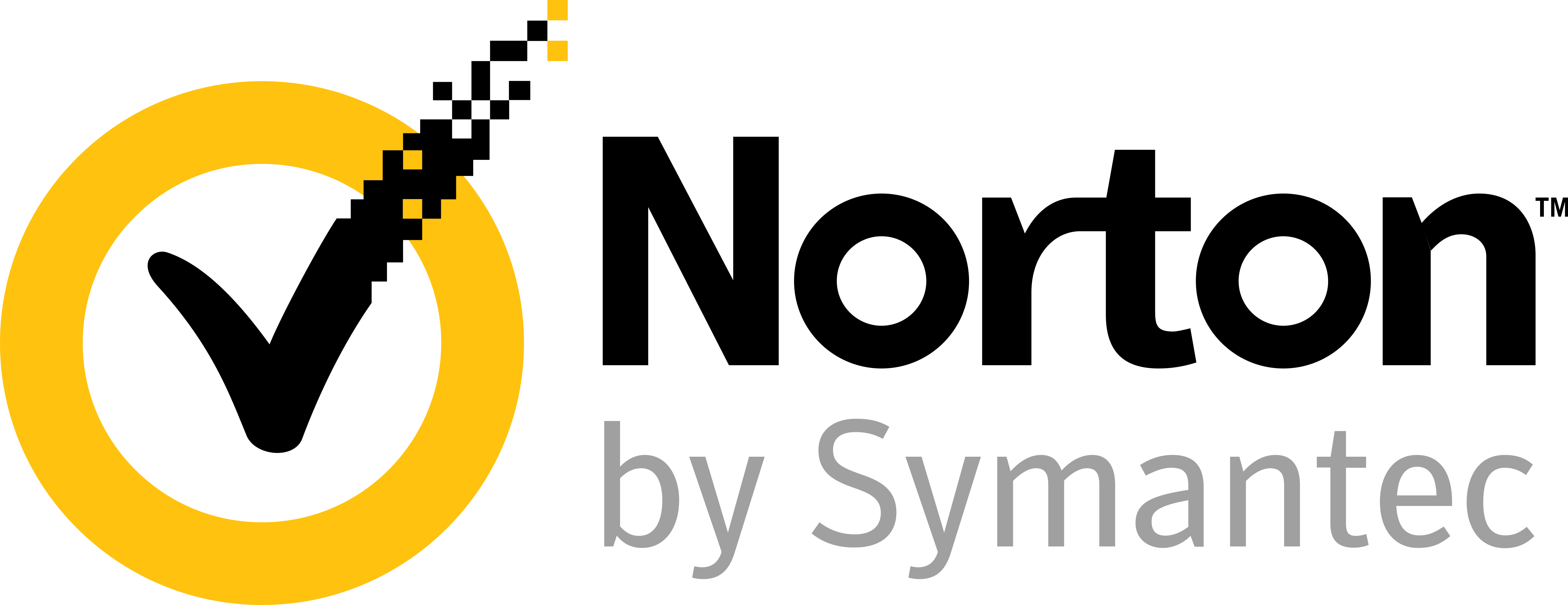How to Tag Images for E-commerce Websites Using Amazon Mechanical Turk
If you're looking to optimize your e-commerce website's product visibility and drive growth through improved search engine rankings, accurately tagging your product images is a vital step. Amazon Mechanical Turk (MTurk) offers a platform to efficiently outsource this task by creating Human Intelligence Tasks (HITs). This article will explain how this side hustle works and how to implement it effectively.
How It Works
Amazon Mechanical Turk (MTurk) is a crowdsourcing marketplace that connects businesses with a diverse, on-demand workforce to perform tasks that require human intelligence. By creating HITs, you can enable workers to label and categorize your product images. This, in turn, enhances your website's search engine optimization (SEO) by making your products easier to find through search engines.
Steps to Implement
1. Setting Up an MTurk Account
First, you'll need to create an MTurk requester account. This will allow you to post tasks and manage the workforce that completes them.
2. Creating Effective HIT Templates
Design your HIT templates to be clear and concise. Include specific instructions on how you want the images tagged and categorized. A well-structured template will help ensure that workers understand what is required, reducing the risk of errors.
3. Defining Worker Qualifications
To guarantee high-quality results, set up worker qualifications. You can filter workers based on criteria such as location, approval rate, and number of tasks previously completed. This helps you select workers who are more likely to deliver accurate and reliable work.
4. Posting Your HITs
Once your templates and qualifications are ready, you can post your HITs on MTurk. Make sure to monitor the initial responses to ensure that the instructions are being followed correctly. Adjust the template or qualifications if necessary.
5. Reviewing and Approving Work
After workers complete the HITs, review the submitted work for accuracy. Approve the tasks that meet your standards and provide feedback or rejections for those that do not. Consistent feedback will help workers improve their performance on future tasks.
6. Integrating Tagged Images
Finally, integrate the accurately tagged images into your e-commerce website. This will enhance your SEO, making your products more visible to potential customers.
Tips for Success
- Clear Instructions: Always provide detailed and easy-to-understand instructions to minimize confusion.
- Quality Control: Implement a system for quality control, such as random spot checks of completed tasks.
- Feedback Mechanism: Provide constructive feedback to help workers improve their tagging accuracy.
By following these steps, you can effectively use Amazon Mechanical Turk to tag images for your e-commerce website, enhancing product visibility and driving growth through better search engine rankings.
Benefits of Image Tagging
By accurately tagging your images, you enable search engines to better understand their content and context, which in turn improves the visibility and accessibility of your side hustle's offerings. This is because search engines can more effectively identify and categorize images with relevant keywords, enhancing image relevance. As a result, your side hustle's products or services become more discoverable, increasing the chances of attracting potential customers. Furthermore, accurate tagging also enhances user experience by allowing customers to quickly find offerings that match their search queries.
To reap these benefits, it's vital to prioritize tagging accuracy. Inaccurate or incomplete tags can lead to misclassification, making it difficult for search engines to comprehend image content. This, in turn, negatively impacts your side hustle's visibility and accessibility. Consequently, investing time and effort into accurately tagging your images is essential.
With a focus on image relevance and tagging accuracy, you can greatly improve your side hustle's search engine optimization (SEO) and overall performance. By doing so, you'll be better equipped to cater to your target audience's needs, driving business growth and revenue.
Setting Up MTurk Account
You'll need to create an MTurk account to get started with your side hustle in image tagging for e-commerce websites.
As you sign up, you'll be required to verify your account information, including your email address and phone number, to guarantee secure access.
Next, you'll set up a payment method, which will allow you to post HITs (Human Intelligence Tasks) and pay workers for completing them.
Creating an MTurk Account
To utilize Amazon's Mechanical Turk (MTurk) platform as a side hustle for image tagging, your first step is to set up an MTurk account, which will serve as the central hub for your tagging projects and workflow management.
When creating your account, follow these registration tips to ensure a smooth process. Start by visiting the MTurk website and clicking on the 'Create an Account' button. Fill out the registration form with your name, email address, and password. You'll also need to provide some basic information about yourself, such as your address and phone number.
Once your account is set up, you can start accepting tasks and earning extra income through image tagging.
Verifying Account Information
Upon completing the registration process for your MTurk account, your next step is to verify the account information you've provided. This verification is crucial to ensure the security and integrity of your MTurk side hustle.
To begin, you'll receive an email from Amazon containing a verification link. Click on this link to confirm your email address and activate your account.
As part of the verification process, you'll need to provide additional information such as your name, address, and phone number. This step is necessary to validate your identity and prevent unauthorized access to your account.
Amazon prioritizes data security, and this verification process is designed to protect your account and sensitive information. Once you've completed the verification process, your account will be activated, allowing you to start using MTurk to take on and manage your HITs (Human Intelligence Tasks).
Setting Up Payment
After verifying your account information, setting up your payment method is a critical step in optimizing your side hustle on MTurk. This process allows Amazon to securely deposit your earnings into your bank account, making it easier for you to access the money you earn from your tasks. You'll need to provide your bank account details, including the account holder's name, bank name, and account number. Amazon uses this information to transfer your earnings via direct deposit.
| Payment Method | Payment Processing Time | Fees |
|---|---|---|
| Direct Deposit | 2-3 business days | None |
| Amazon Payments | 1-2 business days | 1% of earnings |
| Bank Transfer | 3-5 business days | $1 per transfer |
| Check | 5-7 business days | $5 per check |
You can choose from various payment methods, including direct deposit, Amazon Payments, bank transfer, and check. The payment processing time and fees vary depending on the method you choose. Direct deposit is the most convenient option, with no fees and a processing time of 2-3 business days. Amazon Payments is another fast option, but it incurs a 1% fee on your earnings. Bank transfer and check take longer to process and incur fees.
Creating Image Tagging HITs
You're now ready to create Image Tagging HITs for your side hustle, which will enable you to collect relevant labels for your e-commerce images.
To start, you'll design a HIT template that clearly outlines the task requirements and provides space for workers to enter their tags.
Designing HIT Templates
Designing HIT templates for image tagging tasks as a side hustle involves creating a structured layout that clearly presents the image to be tagged, the tagging instructions, and the input fields for capturing worker responses.
As you create your HIT template, consider the image layout and user interface to ensure workers can easily view and tag the images. A well-designed template will improve worker efficiency and accuracy, making your side hustle more profitable.
To create an effective HIT template for your side hustle, you'll need to:
- Display the image prominently: Ensure the image is large enough for workers to clearly view the details, but not so large that it overwhelms the page.
- Provide clear instructions: Use simple language to explain the tagging task and any specific requirements, such as the type of tags to use or the level of detail required.
- Use intuitive input fields: Utilize checkboxes, dropdown menus, or text boxes that are easy for workers to use and reduce the likelihood of errors.
Setting Tag Options
With your HIT template structured for ideal worker efficiency and accuracy, your next step in creating effective image tagging HITs as a side hustle is to set tag options that allow workers to select from a predefined list of tags, reducing errors and increasing consistency across your dataset.
You'll need to define a set of tags that align with your tagging guidelines, which may include categories such as product type, color, material, or pattern.
To guarantee accuracy, you can also provide workers with clear image categorization examples, illustrating the types of images that should be associated with each tag.
When setting up your tag options, you can choose from various formats, such as dropdown menus, checkbox lists, or radio buttons, depending on the complexity of your tagging task.
Publishing HIT Batches
To take your image tagging side hustle to the next level, your next step is creating and publishing HIT batches on Amazon Mechanical Turk. This involves uploading your dataset, setting a payment structure, and defining quality control measures to ensure efficient processing and high-quality output.
Effective batch management involves:
- Splitting large datasets: Divide your dataset into smaller batches to avoid overwhelming workers and to allow for more efficient processing.
- Setting batch-level payment structures: Determine the payment amount for each batch based on the complexity of the task, the volume of images, and the level of worker expertise required.
- Implementing quality control measures: Define approval requirements, worker qualifications, and feedback mechanisms to guarantee accurate and consistent tagging.
As you publish your HIT batches, consider worker engagement strategies to motivate high-quality work and retain skilled workers.
Clear instructions, competitive payment, and opportunities for feedback can all contribute to a positive worker experience.
Designing HIT Templates
Your HIT template is a critical component of the image tagging process for your side hustle, as it dictates the format and structure of the tasks that freelancers will complete to annotate your product images.
When designing your HIT template, you'll need to take into account user interface design principles to create a clear and intuitive workspace for freelancers. This includes organizing the layout, selecting the right input fields, and crafting clear instructions.
Through template customization, you can tailor your HIT template to fit the specific requirements of your image tagging project. You can choose from various template types, such as classification, transcription, or content moderation, and add custom fields to capture specific metadata.
By investing time in designing an effective HIT template, you'll improve the accuracy and efficiency of your image tagging process, ensuring that your product images are properly annotated and ready for use.
A well-designed template also helps to reduce errors and inconsistencies, resulting in higher-quality output from freelancers.
Pricing and Budgeting HITs
As you embark on your side hustle of creating HITs for image tagging tasks, it's crucial to develop a pricing strategy that balances your budget with the quality of work you require.
Consider factors such as the complexity of the task, the time it takes to complete, and the level of expertise needed to determine the ideal price per HIT.
HIT Pricing Strategies
Setting an ideal price for your side hustle tasks requires analyzing the costs and benefits, including the time spent by workers, the level of expertise required, and the desired quality of output.
To determine a fair and effective price for your tasks, you'll need to contemplate dynamic pricing strategies that account for fluctuations in worker availability and demand. Conducting a competitive analysis of similar tasks posted on gig economy platforms can also help you gauge the going rate for tasks of similar complexity and scope.
Here are three key factors to take into account when pricing your side hustle tasks:
- Time required to complete the task: More complex or time-consuming tasks warrant higher payment to compensate workers for their time and effort.
- Level of expertise required: Tasks requiring specialized skills or knowledge may necessitate higher payment to attract qualified workers.
- Desired quality of output: If high-quality output is vital, you may need to pay more to attract top-performing workers and guarantee accuracy and attention to detail.
Budgeting for Quality
Budgeting for Quality
Determining the ideal budget for your side hustle involves a delicate balance between allocating sufficient funds to attract high-quality workers and minimizing costs to maintain profitability, particularly in tasks like image tagging where accuracy is essential.
You need to strike a balance between the payment offered and the level of quality expected.
To achieve this, you can employ cost-effective strategies such as setting a competitive payment rate, providing clear instructions, and offering bonuses for high-quality work.
Cost Control Methods
Effective cost control in image tagging for e-commerce websites hinges on your ability to strategically price and budget Human Intelligence Tasks (HITs), which directly impacts the quality of output and your side hustle's overall profitability.
As you navigate the complexities of cost management, you'll need to balance your budget with the need for high-quality output.
To optimize efficiency and stay within budget, consider the following cost control methods:
- Set clear expectations: Define the scope and requirements of each HIT to avoid unnecessary revisions and minimize the risk of costly errors.
- Use tiered pricing: Offer different payment tiers to workers based on their level of expertise and the complexity of the task, guaranteeing that you're not overpaying for simple tasks.
- Monitor and adjust: Continuously monitor your project's progress and adjust your pricing and budget as needed to guarantee you're staying within your allocated funds.
Qualifications for Workers
To guarantee accurate and high-quality image tagging for your side hustle, you typically require workers with strong analytical skills, attention to detail, and a basic understanding of e-commerce product categories and attributes.
As you create your HIT (Human Intelligence Task), you'll want to specify the qualifications required for workers to complete the task efficiently. This may include worker experience with similar tasks, which can be measured by the worker's approval rate on Amazon Mechanical Turk.
When setting qualifications, you'll also consider task efficiency. Workers with experience in image tagging will likely complete your HIT more quickly and accurately, allowing you to evaluate and validate the results faster.
Additionally, you may want to require workers to have a minimum number of completed HITs or a certain level of worker experience in related tasks. By setting these qualifications, you can increase the likelihood of high-quality results and reduce the need for extensive review and validation.
This, in turn, will lead to a more efficient and cost-effective image tagging process for your side hustle.
Managing HIT Results
As you receive completed HITs for your side hustle, it's crucial to regularly review and validate the results to ensure they meet your image tagging requirements and quality standards. This involves analyzing the data submitted by workers to verify its accuracy, completeness, and consistency.
To effectively manage HIT results for your side hustle, consider the following:
- Data analysis: Utilize Amazon Mechanical Turk's built-in tools or third-party software to review and analyze the data. This will help you identify trends, patterns, and potential issues with the data, ensuring your side hustle maintains high standards.
- Worker feedback: Provide constructive feedback to workers on their performance, highlighting their strengths and areas for improvement. This will help workers enhance their skills and increase the overall quality of the data for your side hustle.
- Result validation: Regularly validate the results by checking them against your image tagging requirements and quality standards. This ensures the data is accurate and consistent, helping you identify any potential issues and maintain the integrity of your side hustle.
Quality Control Measures
Implementing quality control measures in your side hustle is essential to ensure that your image tagging data meets the required standards of accuracy, completeness, and consistency.
Start by establishing a robust set of checks and balances. This includes setting up a quality assurance process to review and evaluate the performance of your Turkers, identifying areas that require improvement, and taking corrective action to address errors.
Error analysis is crucial for pinpointing the root causes of accuracy issues and guiding your corrective actions. By examining your HIT results, you can identify common pitfalls, misinterpretations, or knowledge gaps among your Turkers.
These insights will help you adjust your guidance, examples, or selection criteria for future HIT tasks. Effective quality control ensures that the output of your side hustle remains complete, reliable, and coherent.
This approach will help you achieve the desired outcomes from posting HITs on the Amazon Mechanical Turk marketplace. Consequently, you'll continually refine and optimize your framework to obtain accurate and high-quality results, ultimately boosting the success of your side hustle.
Scaling Image Tagging Tasks
Scaling image tagging tasks efficiently as a side hustle requires developing a structured workflow that leverages automation tools, optimizes task batching, and streamlines worker allocation.
As you grow your image tagging side hustle, you'll need to create scalable workflows that can handle increased volumes of work without compromising efficiency or accuracy. Here are three key strategies to help you achieve efficient tagging:
- Automate task creation and assignment: Use Amazon Mechanical Turk's (MTurk) API or third-party tools to automate the creation and assignment of tasks. This not only saves you time but also reduces the risk of human error, allowing you to focus on growing your side hustle.
- Optimize task batching: Break down large tasks into smaller, more manageable batches. This enables you to process tasks more efficiently, prevents worker fatigue, and ensures that your side hustle runs smoothly even as it scales.
- Implement worker allocation algorithms: Use algorithms to allocate tasks to workers based on their skills and performance. This guarantees that tasks are completed accurately and efficiently, helping you maintain high-quality standards as you expand your side hustle.
Best Practices for Success
To guarantee long-term success in image tagging as a side hustle, certain best practices must be implemented consistently.
You'll want to start by selecting the right image tagging tools for your projects. These tools should enable you to efficiently annotate and categorize images, as well as track progress and accuracy. Consider utilizing tools with features like automated annotation suggestions, image classification, and object detection.
Next, focus on workflow optimization to maximize efficiency and productivity. This involves streamlining your image tagging process, from uploading images to reviewing and validating annotations.
Implement a clear and consistent workflow that minimizes manual effort and reduces errors. You can also leverage platforms like Amazon Mechanical Turk's (MTurk) built-in features, such as HITs (Human Intelligence Tasks) and worker qualifications, to optimize your workflow.
Conclusion
You've invested time and effort into perfecting your image tagging process on Amazon Mechanical Turk.
The finish line is in sight as high-quality tags boost your e-commerce website's visibility, and sales start to soar.
With scalable HITs humming in the background, your side hustle transforms into a treasure trove of easily discoverable items.
The end result? A well-oiled machine generating extra income and driving personal growth, all thanks to meticulously crafted HITs and effective quality control.

















































0
View comments